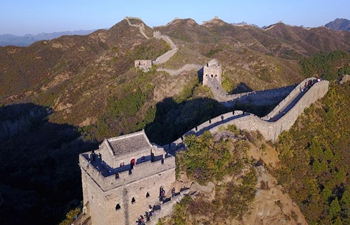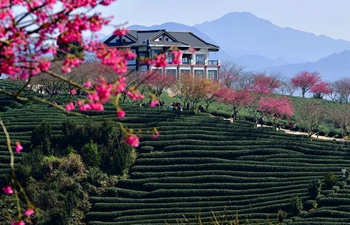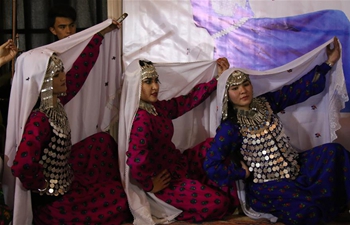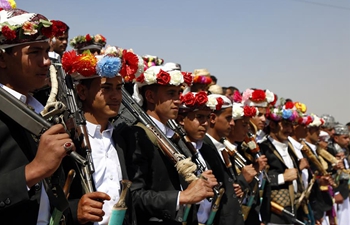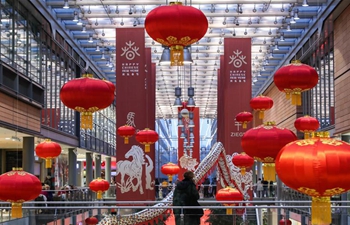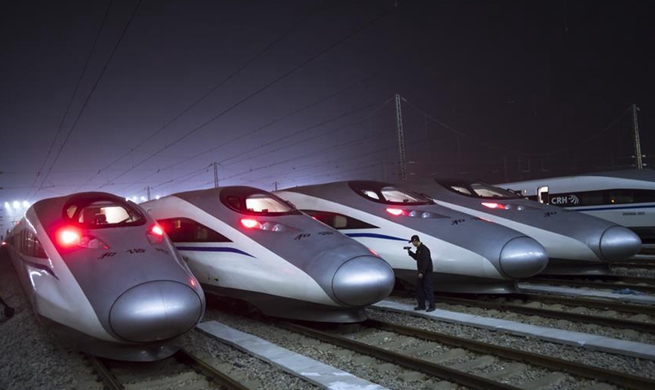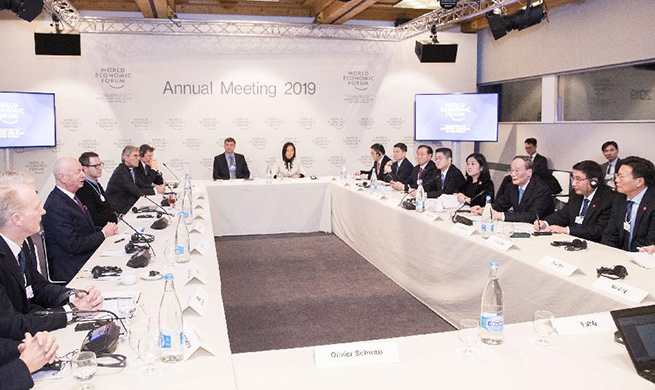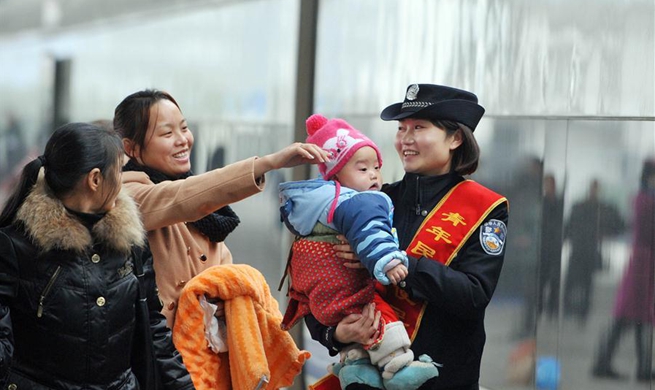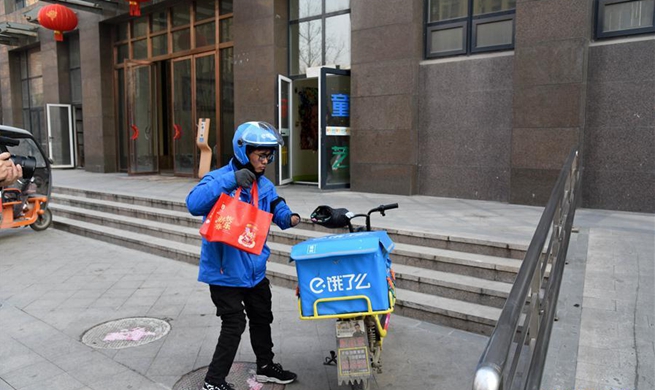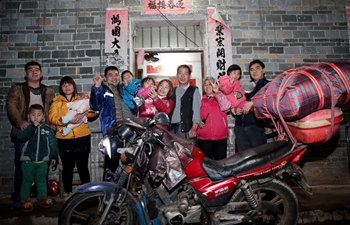by Mahmoud Fouly
CAIRO, Jan. 25 (Xinhua) -- China-proposed Belt and Road Initiative (BRI) is a "game changer" for world economy due to its influence on economic and trade relations between participant states through win-win partnerships, said Hisham el-Zimaity, secretary general of the Egyptian Council for Foreign Affairs (ECFA), in a recent interview with Xinhua.
"There is lack of communication and sufficient transport to link developing states, but the BRI adds new roads and means of transport through infrastructure projects, development of ports, road networks, railways, etc., facilitating communication and trade among nations," Zimaity, also Egypt's former ambassador to Japan, Hungary, Slovenia and Pakistan, added.
Proposed by China in 2013, the BRI refers to the Silk Road Economic Belt and the 21st Century Maritime Silk Road, which aim at building a trade and infrastructure network connecting Asia with Europe, Africa and beyond through the revival of ancient trade routes.
The Egyptian ex-diplomat said that his country is a focal point in the BRI as Egypt's vital Suez Canal is a central waterway for world trade, and the development of the Suez Canal Economic Zone (SCZone) through the upgrade of several ports and the establishment of key infrastructure projects highlights it on the BRI map.
Under the BRI, China has funded many infrastructure projects in Africa, including the railway connecting Ethiopia and Djibouti, the Maputo-Katembe cross-sea bridge in Mozambique and others.
"The BRI helps boost mutual trade between Egypt and other African states, because Mombasa and Djibouti ports developed by China have become very important for international trade and they both have direct links with Egypt's Suez Canal," said Zimaity.
Chinese industrial developer Tianjin Economic-Technological Development Area (TEDA) is currently developing a total area of 7.23 square km in the SCZone in Ain Sokhna district of Suez province east of the Egyptian capital Cairo.
Many tenants and enterprises were attracted to the SCZone, including China's fiberglass giant manufacturer Jushi, which helped Egypt become one of the largest fiberglass producers and exporters in the world over the past couple of years.
"There are dozens of Chinese companies currently investing in the Suez Canal region in various fields that are important to both the Egyptian market and the Chinese investors," Zimaity told Xinhua, stressing the growing Egyptian-Chinese relations in the light of the initiative.
He added that Egypt's special location as a portal for Africa, the Arab world and the Middle East, besides the presence of the Suez Canal, "makes it a main strategic partner in this important initiative."
The ECFA secretary-general noted that the BRI routes pass through states that are not completely stable, such as Afghanistan, Iraq and Syria, adding that "China is among the leading states that work on the stability and development of these countries."
The veteran diplomat also emphasized that the ECFA, most of whose members are former ambassadors and diplomats, thinkers, businessmen and experts, has communications with several think-tanks in China where they exchange visits, dialogues and views, which help in forming a deeper idea about each development stage of the Chinese initiative.
"The ECFA is in constant communication with all state ministries, especially the Foreign Ministry. When we reach any recommendations in the ECFA concerning the BRI, we present them to the Egyptian foreign minister to consider," he added.




